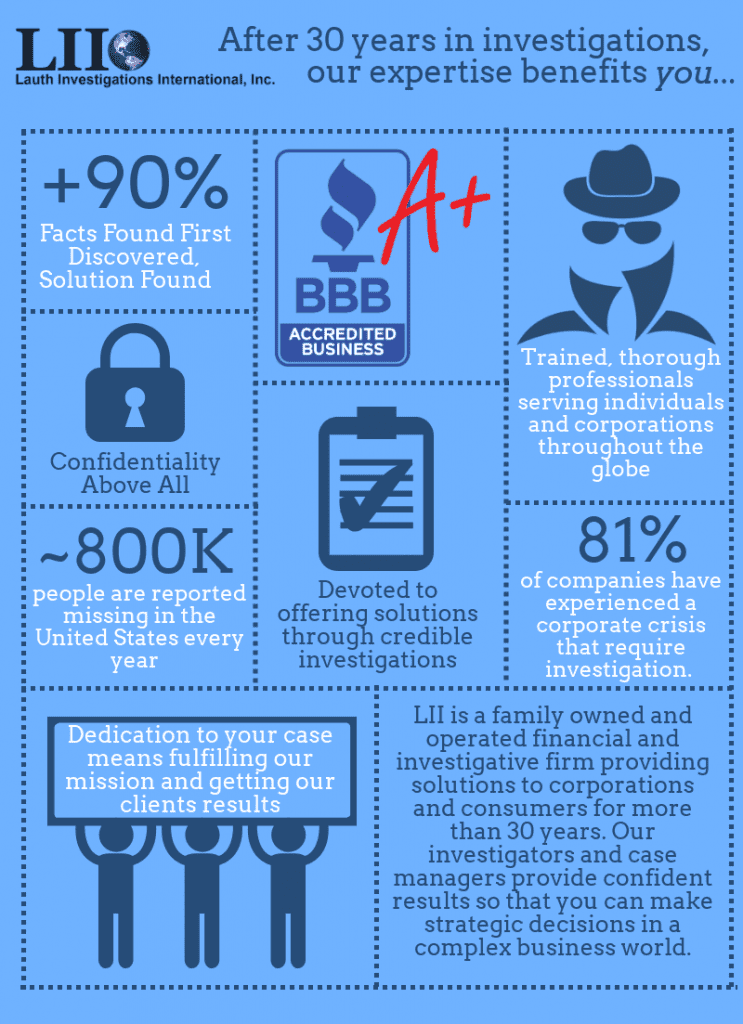When to Call a Professional for a Corporate Investigation
Most experienced professionals in upper-management and/or HR positions have had to conduct some type of corporate investigation at some point during their careers. It’s just par for the course. Unfortunately, there are certain circumstances in which an internal investigation conducted by company employees may not be the best option. In these cases, hiring a professional is a better choice. Not sure when’s the right time to call in reinforcements? Here are a few guidelines.
What is Workers’ Comp Fraud and How Can a Private Investigator Help?
Workers’ compensation is an insurance program that is designed to assist employees who become injured on the job or suffer a job-related illness. Unfortunately, not every claim that is filed is legitimate and the business is often the one that pays the price. In fact, more than 1 in 10 employers are concerned that a worker will fake an illness or injury in order to fraudulently collect workers’ comp benefits. Let’s take a closer look at the different types of workers’ comp fraud and what you can do to protect your company from becoming a victim.
7 Steps to a Successful Workplace Investigation
Despite your best efforts, complaints and internal issues will sometimes arise in the workplace. In these instances, a thorough investigation of the situation can vastly improve the chances of a favorable outcome for your company. For instance, the information you uncover can help build a case and/or protect your firm’s hard-earned reputation. If you’re dealing with a potential problem, such as employee theft, fraud or drug abuse, here are 7 steps to conducting a successful workplace investigation.
How a Private Investigator Can Help in a White Collar Criminal Case
White collar crime happens every day in the US, and it costs corporations billions of dollars annually. As with most things, preventing these crimes from occurring is always preferable, but given the number of cases making the news on a weekly basis, that’s obviously not always possible. For those situations in which you either suspect a crime is being committed in the workplace or you’re already in the throes of a legal battle, an experienced private investigator can significantly improve the chances of a more favorable outcome. Here’s how.
Tips for Resolving Commercial Disputes
No organization ever wants to have to deal with the messy details of commercial disputes, but despite our best efforts, these things happen. How you respond to such a situation can make a significant difference in the outcome. Should you find yourself dealing with a dispute, whether it’s over a simple misunderstanding or something more complicated, here are a few best practices for making the process go more smoothly.
7 Steps to Take When You’re Suspicious of Employee Drug Abuse
Employee drug abuse in the workplace can lead to a wide variety of problems, many of which can affect your company’s bottom line, regardless of whether the drug happens to be alcohol, prescription medication or illegal substances, or whether the use is occurring during working hours or on the employee’s personal time. Not only do these things affect the employee in question and the company as a whole, but they can also have a negative impact on other employees, leading to a host of other problems. To avoid this, management and those in HR must be proactive and vigilant so potential issues can be addressed swiftly and effectively. If you suspect that one or more of your employees may be abusing drugs, here are 7 steps to get the situation under control.
What’s Involved in a Copyright Infringement Investigation?

Copyright infringement can be one of the most detrimental infractions a business can fall victim to. Regardless of the size or industry of the organization, locating violators and holding them accountable is something that must be done to protect the integrity and hard work of the company. As experienced private investigators, we’ve assisted with countless copyright infringement investigations over the years. Here’s what the process typically involves.
7 Important Things to Know About Court Records
Seasoned private investigators know that when it comes to collecting and compiling pertinent information to help bolster a legal case, the records filed in court can mean the difference between a nail-biter and a slam-dunk case. That said, there are certain things one should understand about court records before proceeding, including how to leverage them to help bolster your investigation. Let’s take a look.
Should I Hire a Private Investigator to Catch My Cheating Spouse?
Few situations in life are more emotionally charged as the thought of one’s spouse being unfaithful. In many cases, hiring a private investigator can help to uncover the truth so the next steps can be taken, whether they lead to divorce or reconciliation. Let’s explore some of the benefits working with a professional can have.
4 Reasons to Hire a Private Investigator During Your Divorce

Going through a divorce is difficult no matter what the circumstances. Having a skilled, experienced private investigator in your corner can make a challenging situation a little bit easier to navigate.